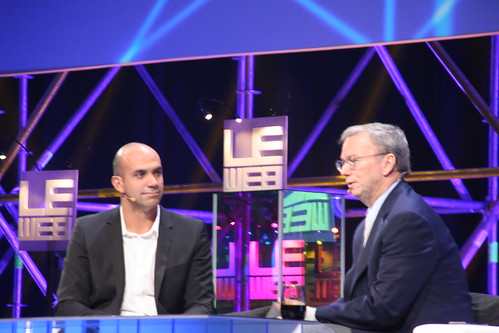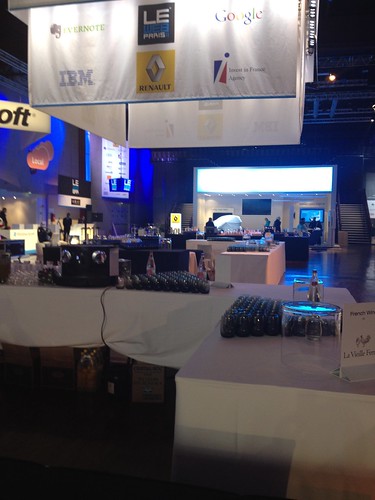Bill Gross, Founder & CEO, Idealab
“Learning From Failure: 20 Years of Entrepreneurial Lessons in 20 Minutes”
Solar power plans at highschool. Gave Lesson 1: Market Power, when market taking off without you doing, is best. Need to get in early for this.
At college, designed high end speakers. Sold at school and in stores. HAd to convince people to buy.. This lead to Lesson 2: master the demo. Know how to sell and convince people.
Graduated and bought first computer., Worked with Lotus 123, developed accountancy tools. and ways to make Lotus easy. Sold on to Lotus. Had a great time there. This lead to Lesson 3: Pursue your Passion. You have to work at something you love, only way to get over the great challenges.
Then started an educational company, to get kids to fall in love with learning. Started doing weekend demos at the companies, just got people to do this from the company to make the numbers. They shared the stories…which led to product development…making narrower products, for a single year of age. Despite Sales force being against it, they tried it and it sold well. This is Lesson 4: Focus, Focus, Focus, do fewer things extraordinarily well.
Next up was Idealab, to get people to try things, without punishment. Has started 100 companies from this (about 300 rounds of financing, raised about £2.8b. Had 40 failures, but rest good. This led to lesson 5: Recognise your Strengths. Brough in people complemented him.
Talking about successes, failures and in progress. A failure was eToys, ecommerce for toys. Raised 400k, Grew over 3 years, then went public. At one point had market cap greater than ToyRUS. Post IPO, it grew very, very quickly, did 160m in revenue, but had built for 300m. Then dotcom crash, could not do second, so Lesson 6: Don’t overbuild. So grow slowly, better to do that than fail due to going to fast.
z.com was another failure, comedy stuff. Got people to do lots of content. Needed broadband..not enough. So slowly. They hired 120, then cut and cut and cut…ran out of money. Ahead of time. So lesson 7: Survive until market is ready. Should have cut burn until ready.
CarsDirect started in 1999. Wanted to sell cars online, without going to dealers. Tested over a short time, 3 months, low cost. Got someone to run it, was looking deals, doing lots of planning…site live on day 80…sold 4 cars first night. THen turned it off, they had proved the idea, so spent 6 months building it properly! So lesson 8: test, test, test. Don’t spend money in advance, have to make it a real test though, with the customer
goto.com was in 1998; companies were buying traffic, through ads, or through portals. Developed model of cost for click (instead of CPM as it was then in the main). People did not like the idea…launched and it grew…it became Overture. Everyone signed up. Sold to Yahoo..who 5 years had said they would never do it. Lesson 9 is stick with it. They had a great idea and kept at it
Now looking at Solar, building something that can be deployed quickly, to drive costs down. There are challenges, huge capital needs, so GE invested. LEsson 10, You need the Partners. YOu need the right partners to develop.
Finally, Ubermedia. Saw tweets leaving stream, without relevance, wanted to make it easier to find things. We grew, we acquired, we have built own. Lesson 10: you have to harness users passion
Final lesson, all truth has 3 stages. First is ridiculed, the violently opposed than accepted as being self-evident. You need to be ready to face ridicule and opposition….


